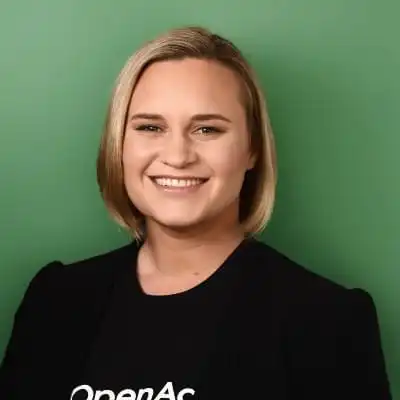Working at a start-up: the good, the bad and the ugly
Working in a start-up can be a bit of shock to newcomers and bumpy roller coaster ride of ups and downs, even for those that are used this type of environment.
“There will absolutely be downs that feel very low,” warns Zoe Pointon, cofounder of OpenAgent, a start-up which is fast shaking up the real estate market. These, she says, can range from others not seeing your vision, struggling to raise funding or when things don’t work out at first. For newcomers, there’s plenty to get used to if they join from more traditional working environments. For one, they may not get paid as much.
“At first we weren't being paid at all and this phase lasted for about one year,” says Pointon. “That was pretty tough especially because we were funding all the early expenses out of our own pockets.” Often it means working on smell of an oil rag. “In the beginning, I found the fact that we could not get everything done extremely challenging,” says Marta Higuera, the other cofounder of OpenAgent. “We had to make the most out of our resources and time, and focus on a few things and get them very right.”
Things at a start-up often happen at a quicker pace. “In an established corporate, there can be a lot of processes in getting things done,” says Pointon. “Working with a start-up, you can have a good idea in the morning and have it live on the site that afternoon. That doesn’t mean you can do whatever you like. There are still processes around how decisions are made. It just all happens that much faster.”
Start-up life can also involve hard choices. “Prioritisation exists in everyone’s role no matter the company size, but my personal experience is that in a start-up, where there are so many good ideas and not enough resources, you need to often choose between two great ideas,” says Seton, who had worked at another start-up, hipages.com.au, for eight years before joining OpenAgent. “You need to learn to not be wedded to ideas and to evaluate ideas objectively."
“You also need to be prepared to operate out of your comfort zone. Being in a start-up will always throw new challenges at you and you will have to solve them with no experience in that area. You will often be out of your depth and learning new things on the fly. And sometimes you will be doing someone else's job. In a small company, everyone has to pitch in and work together.” But working at a start-up has many pros.
For Seton, a major plus is the energy. “It’s an exciting place to be, particularly a place like OpenAgent which is growing rapidly. The culture that this creates is different from any other workplace I’ve been a part of. You have the opportunity to create something, to be at the ground level as a company is forming and to help shape and create that company. It is very hard to have that level of influence in an established organisation as it’s already been created.”
Pointon enjoys the feeling that she’s really making an impact. “If we think a problem is worth solving, we go ahead and solve it. Nothing stands in our way of getting things done and so lots and lots of things do get done. That is really satisfying. I also love working with a team that feels empowered and which wants to be there. Most people could get jobs at big companies and many have options that would pay them more, but the overriding feeling is that people want to be at work. They enjoy doing what we are doing. They feel like we are winning. I think that feeling that everyone wants to be there is pretty rare in a workplace, and it just feels great to turn up to work every day in a culture like that.”
It’s this team culture that’s given Jorden Minos, OpenAgent’s head of commercial operations, the biggest buzz. “I’ve only been here a few months, so for me it’s just about being a part of the amazing team culture. It’s clear that the team members are passionate about their roles, their customers and excited about what the business is setting out to achieve.
“The nature of the start-up also means that each person involved is more empowered to make a huge impact on the business, compared to a traditional business which can sometimes stifle achievement and the ability to quickly overcome hurdles.”
Anne Grobler, OpenAgent’s head of marketing, enjoys that the fact that there are less systems and procedures in place. “You have to create everything. There’s no bureaucracy or tape,” she says. “And to see how many talented young dynamic, extremely smart people we have that work here never stops amazing me.”
Higuera adds that start-ups offers definite advantages for those looking to develop their skills and expertise. “The growth and development is the most accelerated I've ever experienced: start-up school beats McKinsey and Stanford schools,” she says. “I am constantly learning new things. You get to do everything and anything that is valuable and you are passionate about: positions and roles are only a guideline.”
Similarly, Seton says: “I’ve experienced things and been responsible for things that wouldn’t have been on my radar in an existing organisation until I was much more senior in my career. I also get more exposure to different roles in a company at an in depth level, which has changed my decision-making process. I now sit back and understand the impact of decisions more widely than I did before working in a start-up.” She adds: “Working at a start-up can be challenging sometimes, and hard, but it’s also really rewarding and addictive”





